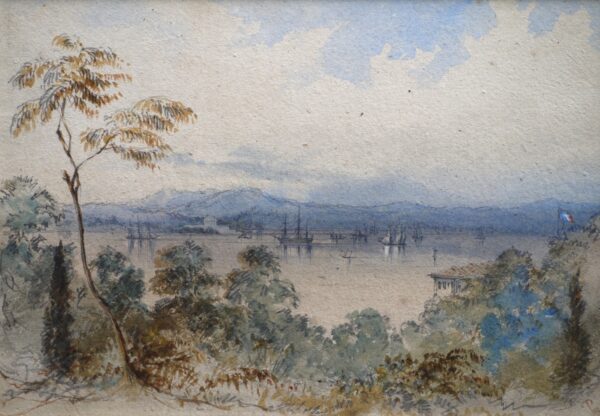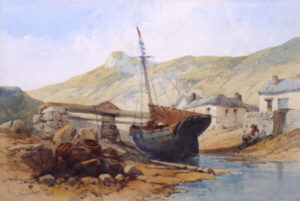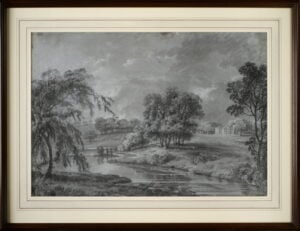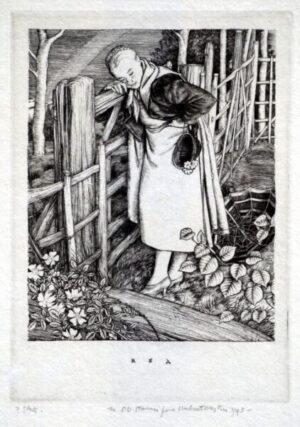Description
The old Barrack Hospital at Scutari, Florence Nightingale’s base during the Crimean War, is still in existence. Scutari was the Greek name for the district of Istanbul now known as Uskudar (pronounced ewskewdar). It is located on the Asian shore of the Bosphorus right opposite the peninsula of Stamboul which is where the Blue Mosque is located.
A similar watercolour by Preziosi painted in the same year is illustrated on the website of the Victoria and Albert Museum, London.
Brand
Preziosi, Count Amadeo (Maltese / 1816-1882)
Preziosi was born into a wealthy and aristocratic Maltese family and studied at the Ecole des Beaux Arts in Paris in 1840. On returning to Malta he found his father to be opposed to his artistic inclinations and so left the island for Constantinople.
His exact date of arrival in Constantinople is not known but it was around November 1842 and Preziosi soon established his reputation as a painter of contemporary Constantinople life. He worked from a studio at Pera and familiarised himself with all Turkish manners and customs, he was very productive, painting picturesque views of the city for a wide variety of European visitors. His representations of the capital of the Ottoman Empire were bought by royal, aristocratic and middle-class tourists.
During the Crimean War the British, French and Turkish fleets anchored in the bay of Buyiikdere in the Bosphorus north of the city, within sight of the entrance to the Black Sea. The war generated an immense amount of interest in Turkey and its inhabitants and such views of 'the seat of war in the east' were very popular with the British.



